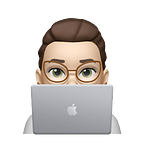Graduate Application: Statement of Purpose
This essay was originally written for consideration of admission to the University of Illinois. It was submitted as a statement of purpose in January 2021, as part of the application package for doctoral candidacy consideration. Since applying, I have been accepted into the Doctorate of Education Program in Education, Policy, and Organizational Leadership (EPOL) with a concentration of Learning Design and Leadership.
Hopefully this gives you inspiration for your application or personal statement, a glimpse into my future dissertation, and the benefits of a learning culture.
With China now the ultimate economic power, ending 2020 with a greater gross domestic product than it started with, the United States Dollar (USD) continues to lose reverence. While there is nothing we can do to change that, we can challenge them in innovation. The United States has dropped significantly on the Bloomberg Innovation Index over the past decade but those who are currently at the top worry about one conventional aspect, education. Experts are concerned that many countries haven’t had the opportunity to innovate in this sector at all as the rise in services now outweigh the current trainings aligned to manufacturing. Therefore, I’d like to propose the combination of higher education with the workplace and workforce. The EPOL program will help to create a strategic and sustainable framework that combines learning with organizational practice, ensuring stakeholder happiness and encouraging investment in the USD.
The research application of the degree and ability to collaborate with those at the top of their game in the fields of learning technologies, organizational leadership, and human resource development attracted me to this program. As a Talent Management Partner and Practitioner, I manage professional development programs, learning experiences, and virtual content within a multigenerational workforce. After facilitating case studies in the SF Bay Area for over four years, consulting with leaders, and implementing results in an effort to improve workforce performance and engagement, I’ve reached a point in my career where I understand that organizations need to interlace constant change with strategy and performance management.
Within an organization, change can be viewed as a death sentence, often associated with loss. If done improperly, those hesitations and fears turn into reality. The pandemic has required substantial changes, one of which is forced isolation. This has caused many to take control of their own learning by encouraging introspection. Through the utilization of free courses, networking and search websites, some who were once college bound have realized that the cost of higher education, as it is today, isn’t worth it. The effects of COVID-19 on this generation will have a profound ripple on the future of postsecondary education. As educational leaders, we have an opportunity to change the way the workforce and workplace function.
According to the National Student Clearinghouse Research Center (2020), undergraduate higher education enrollment has declined ~2% annually over the past decade. With ‘dream job’ companies like Google creating their own bachelors equivalent learning programs for far cheaper and a guaranteed position, American education is on the verge of a major shift. Organizations of power, such as Google, have a unique opportunity to take this idea and turn it into something outside of higher education. While they have the talent, influence, reverence, and funding, they don’t (yet) have the golden egg — the accredited degree. Without this, opportunities after participating in Google’s program are limited. Utilizing the training the EPOL program will provide, we can create a framework to combine experiential and academic learning with organizational development through a hybrid platform measured through mixed methods and compared against current research. I.e., Shifting education back to the forefront through a latticed organizational framework that increases diversity, engagement, productivity, and return on investment for both academic institutions and businesses, guaranteed through continuous measurement.
Regardless as to if this is the answer, the timely opportunity for inquisition into our current organizational practices and educational methods help fuel my enthusiasm for this program. By obtaining this degree, I’ll have an enhanced understanding of how to strategically administer and iterate on programs, policies, and management practices. Completing courses such as Learning Technologies, Organizational Development, and others related to Human Resource Development, will enable me to effectively consider new and continuing programs in alignment with organizational goals and strategic planning. For example, after attending the Program Evaluation course, our team would be better fit to review current programs against an organizational change.
In conclusion, through the application of information taught by the EPOL faculty, organizational changes I’m affiliated with will be more holistic (such as, properly analyzing programs to reduce friction instead of instinctively pushing the ‘next best thing’). Furthermore, collaborating with peers and faculty at the University of Illinois will further support my understanding of current research and how it can be applied to different industries. All in all, regardless of what the future holds, what I will learn from this program will be invaluable and will deepen my understanding of organizational development, leadership, and education.
Thank you for your consideration.
